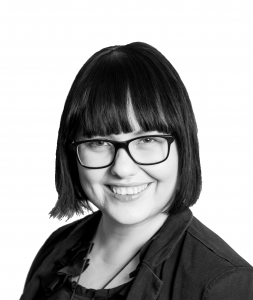The student utility service Frank Students informed on Monday, 16 Sept that they have opened Frank App service for all student in Finland. Every student in upper secondary and higher level can register in the service and make use of student discounts negotiated by Frank.
Opening the service means also that in order to get a digital student identity card, the student doesn’t have to be a member of a student union who has an agreement with Frank. Frank can verify the student status either through partner unions or through My Studyinfo service maintained by the National Board of Education.
Almost all student unions of Finnish universities of applied sciences (UAS) as well as student unions of the universities of Oulu and Vaasa have ended their partnership with Frank. Institutes of higher education also in Tampere have been outside of Frank’s scope. Now, for the first time, Frank can offer their student card for student in Tampere as well.
Digital card initially available for university students
For now, the change in digital student card applies only to students of universities whose student union is not partner with Frank. Therefore, students in upper secondary schools need to belong to either in the Union of Upper Secondary School Students in Finland (SLL) or the National Union of Vocational Students in Finland (SAKKI) in order to get a student card.
Tiia Lehtola, CEO of Frank, gives two reasons for this solution. First of all, there are different things to take into account when it comes to minor customers. Not all of them have the online banking codes that the new way of registering needs. Also, Frank wants to stagger the big change.
“We are now discussing this with the student unions, and we’ll move forward when we’re ready. When the service becomes accessible also for those upper secondary students who are not part of a student union, the next version of membership recruitment integration should also be available in Frank’s service. This way we still support the student unions’ recruitment of members.”
The service opened on the week 37. According to Lehtola, over thousand new students registered Frank’s digital student card during the first week. Most of the new users are students in the biggest universities of applied sciences in Finland, says Lehtola.
She is glad that users are university students from all over Finland – also from those universities that have ended their partnership with Frank.
“We are happy that the students have found Frank. We haven’t informed about it in particular, except for notifying about an application update and posting in our own channels. It seems that the possibility to use Frank has spread quite organically among the students,” Lehtola says.
According to Tiia Lehtola, Frank App has around 80,000 monthly users at the moment. She is pleased with the amount.
“I believe that the average number of active monthly users increases to over 80,000, and I see it’s possible to reach 100,000 users next year at the latest.”
First news came already in 2016
The majority owner of Frank is Kilroy travel agency, and national student unions the National Union of University Students in Finland (SYL), the Union of Upper Secondary School Students in Finland (SLL), the Union of Students in Finnish Universities of Applied Sciences (SAMOK), and the National Union of Vocational Students in Finland (SAKKI) have minor ownership.
In 2016 was the first time Frank informed about their plans to open the digital student card service. Already back then they told that the service would open first to university and UAS students. This year, on 29 August, Oulu Student Magazine wrote that the service would possibly open this autumn.
In the announcement sent to the student magazines, Frank gives two reasons for the change in Frank App: goal to make every student’s life better and the change in operational environment.
Now that the student status verification is not exclusive to student unions only, the student card market has drastically changed. Student status information of 1.3 million degree students in all 38 Finnish higher education institutions is available in the VIRTA higher education achievement register. In addition to active students, the number also includes students who have already graduated. According to the Central Statistical Office of Finland, in 2018 there were around 153,400 university students and 128,500 UAS students. In vocational training leading to a degree there were around 322,200 students and around 103,400 students in upper secondary school.
At the end of the year 2016, the information about Frank’s decision to open their digital student card service caused worry about student unions’ own member recruitment. According to the current Universities Act, a university student has to be a member of a student union in order to get a degree, but this applies neither to UAS students nor upper secondary students. That’s why offering a student card through the student union has been a strong method for recruiting new members.
When membership in a student union is not necessary to get a student card, what happens to student unions and their member recruitment?
In 2016, Turun Sanomat (12 Dec 2016) and Kaleva (15 Dec 2016), among other papers, wrote about the student unions’ concerns.
In Frank’s announcement sent on September 16, three student unions assured that, in addition to the student card, there are other benefits in joining the union.
“The situation of joining the student union is about to change regardless of Frank, when the student can get the card already before joining the student union. By collaborating with Frank, we can make the it as easy and tempting to join the union as possible. Of course, there are other benefits of being a member in student union than just the card. If the user acquisition goes well, we can tell this message even more effectively than now also to those students that we wouldn’t have been able to reach otherwise,” comment the three Secretary Generals Heikki Luoto (SLL), Hanna Huumonen (SAKKI), and Eero Manninen (SYL).
Change is in the air, but of what kind?
There was one student union with ownership in Frank that didn’t give their comment in the announcement. It is SAMOK, the union that represents the UAS students in Finland. Most of the UAS student unions have terminated their contract with Frank, and SAMOK themself has been about to sell their part of Frank, according to the position adopted in the SAMOK general assembly in autumn 2018.
Armi Murto, Executive Director in SAMOK, stated that the ownership hasn’t been sold yet. Still, it remains the objective, she says.
“We try to take steps towards that. It is the decision that has been made, and I try to implement it to the best of my ability.”
As newly selected Executive Director in SAMOK, Murto deems it regrettable that the cooperation between Frank and the student unions hasn’t been successful.
“We have been aware that some kind of changes are coming to the student card market, and the student unions have prepared for the big changes to the best of their abilities. At the moment, I hope that our objective on selling the ownership is carried out as soon as possible, and that we can conclude our general assembly’s hope.”
Does this change in Frank mean turbulence in the field of student unions?
“At least it has brought changes with it as well as caused worry. The change in our operational environment has forced us to do a tremendous work in developing, no one has given up but keeps the positive spirit up – although this is a serious matter,” Armi Murto formulates.
According to Murto, at this point it is still hard to predict how the opening of services affects the student unions’ actions. The student unions have contemplated whether the change takes away their potential members.
Then again, Murto estimates that the student unions have now focused on developing and expanding their membership activities, communicating about their work in representing students’ interests, and about other important work that they do for UAS students. She thinks it has been great to see the developing work in the student unions.
“They have found different solutions: they have tightened the collaboration among themselves and found different alternatives when it comes to service providers, for example, with the student cards. They have exceptionally prepared for the change in the operational environment by focusing on what they should: developing their own actions. Then again, the concern for member decrease is valid and I understand their concern.”
According to her, the possible effects of the change come clearer later in the autumn: “It is always smart to go through what kind of effects are possible and how to react to them. This autumn, we’re focusing on that the student unions recruit members and with positive attitude. After that we see whether their development work has borne anything, and we can evaluate what to change in the future.”
The union looks forward
At the moment, around half of the 140,000 Finnish UAS students are part of the student unions. According to Armi Murto, the degree of unionization has been on the rise during SAMOK’s history.
“Over the years, there have been some slumps, but they have been turned to rise.”
SAMOK, too, follows the development of student unions’ members amount. According to Murto, the union has just drawn up the budget for 2020, and as a part of it, they have predicted a slump in number of members because of the changes in their environment.
Financial planning is done as realistically as possible, according to Armi Murto, and based on member reports from the student unions.
“Regardless of this, we look forward and hope to offer the best service in student representation and influencing for UAS students.”
Translation: Essi Ranta.
More on changes in the student card: More Choices for a Student Card in Oulu: OYY Terminated Contract with Frank and Made a Deal With Pivo for Electronic Student Card
The illustrations uses Prettycons’s and Good Ware’s icons from flaticon.com.
Edited on the 18th of October, 2019 at 8:57 am: Edited the amount of information in VIRTA service, added information that the 1,3 million includes not only the current university and UAS students but also graduated students. Added the Central Statistical Offices’s information about amount of students in universities and universities of applied sciences as well as in vocational and upper secondary schools.










